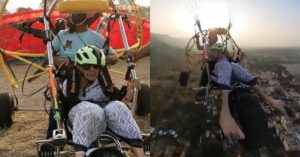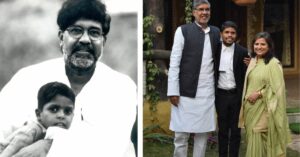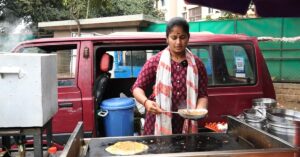Planting 1 Lakh Trees to Battling Poverty: Ex-Security Guard Transforms an Island
Inspired by his parents, Prasenjit Mandal overcame incredible odds to start the Sundarban Foundation, a non-profit which has become a lifeline for the people of Bali island in the Sundarbans.
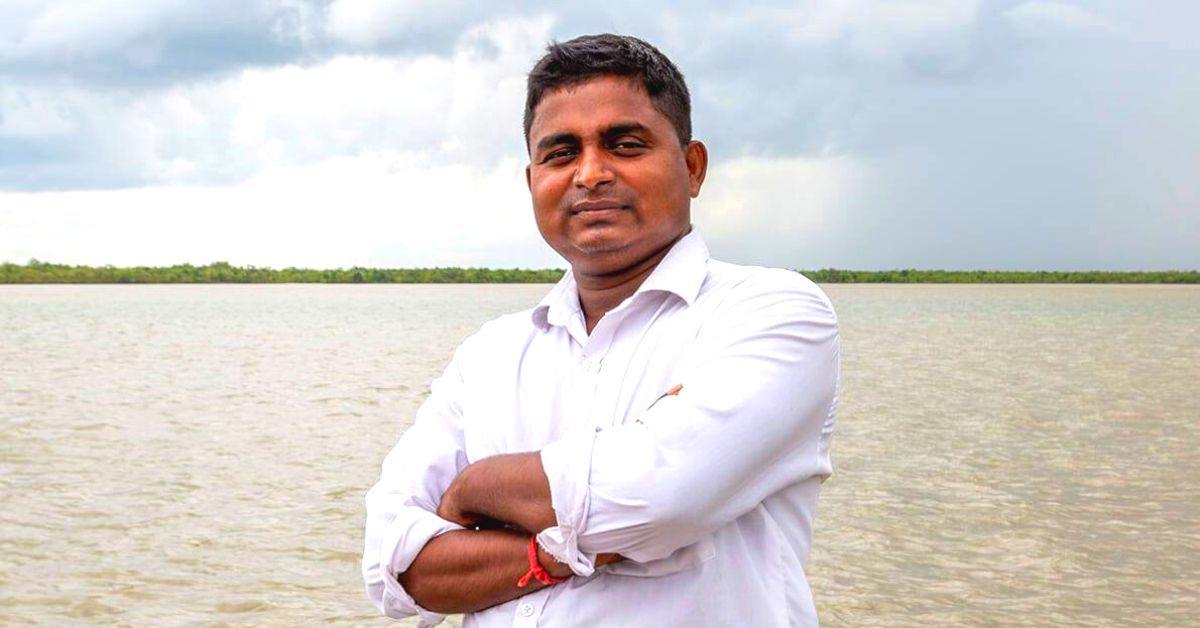
Growing up on the remote island of Bali in the Sundarbans, Prasenjit Mandal recalls living and dealing with scarcity every day. The Sundarbans are a cluster of low-lying islands in the Bay of Bengal spread across India and Bangladesh, famous for its unique mangrove forests.
Raised in a home with a thatched roof and mud walls, Prasenjit came from a family that earned its livelihood through fishing in the river overlooking the deep forest. But natural calamities like cyclones and river floods at different times of the year wreaked havoc on their home regularly, leaving them to battle for food and shelter.
“As a child, I would often see my grandfather and father venture into the deep forest to catch and collect honey, fish and crabs. Later on, my father would venture out by himself. The income he earned would feed my family and sponsor my early education. When he would venture out all alone, we would spend our days in fear and dread thinking about whether he would return. Many have lost their lives in the deep forest while trying to catch fish and crabs in the river with tigers and crocodiles hunting them down,” recalls Prasenjit, speaking to The Better India.
Times were often tough. On occasions, the family would have to sell valuable and practical household items to eat two square meals a day.
“Cyclones in the lower reaches of Gangetic West Bengal washes away fish and crabs from small, medium and large ponds, canals and paddy fields into the Bay of Bengal, resulting in total damage to people’s lives in this low-lying delta. As a result of irregular natural disasters, you face the loss of livelihood, cultivation, and other adverse environmental conditions. Going further, you would see breakdowns in transportation, communication, health and education services. Due to the non-availability of services, survival becomes a big challenge,” he explains.
Despite many steep challenges, Prasenjit Mandal managed to continue his studies with nothing but fortitude and determination. He ignored the storm, rainwater and mud and studied in a government school not too far from home. Assistance for his basic education came from the odd government scheme as well as whatever his family could earn.
“However, I didn’t have money for higher secondary education. So, I borrowed money in exchange for some items from home and was admitted to the local school. Despite earning first-division markings, I could not get into college due to financial constraints,” he adds.
After high school, he left for Kolkata, a city totally alien to him, in 2010, to pursue higher education and help his family financially. He took up all sorts of jobs for money.
As luck would have it, he quickly got a job as a security guard and earned some money, a part of which he would send back home. He also enrolled in computer classes given that such technical skills would help him land a better job opportunity with standard wages.
Thanks to this training, he got a job with the National Industrial Corporation, a manufacturing company. Also, despite all the hardships, he continued his studies after working hours with the money he earned from there while also supporting his family. He would end up with an MA in Bengali from Rabindra Bharati University and a diploma as a certified Computer Operator and Programming Assistant (COPA) from the Industrial Training Institute (ITI) in Kolkata.
Despite his progress in Kolkata, Prasenjit Mandal never forgot where he came from and wanted to make a difference to the residents of Bali and other surrounding islands. Thus, in 2016, he came back home, and in the following year started a non-profit called the Sundarban Foundation, which is today serving his community in a myriad of ways.
From starting livelihood initiatives to opening a free healthcare centre, a school and promoting mangrove cultivation, he has positively affected the lives of thousands in the Sundarbans.
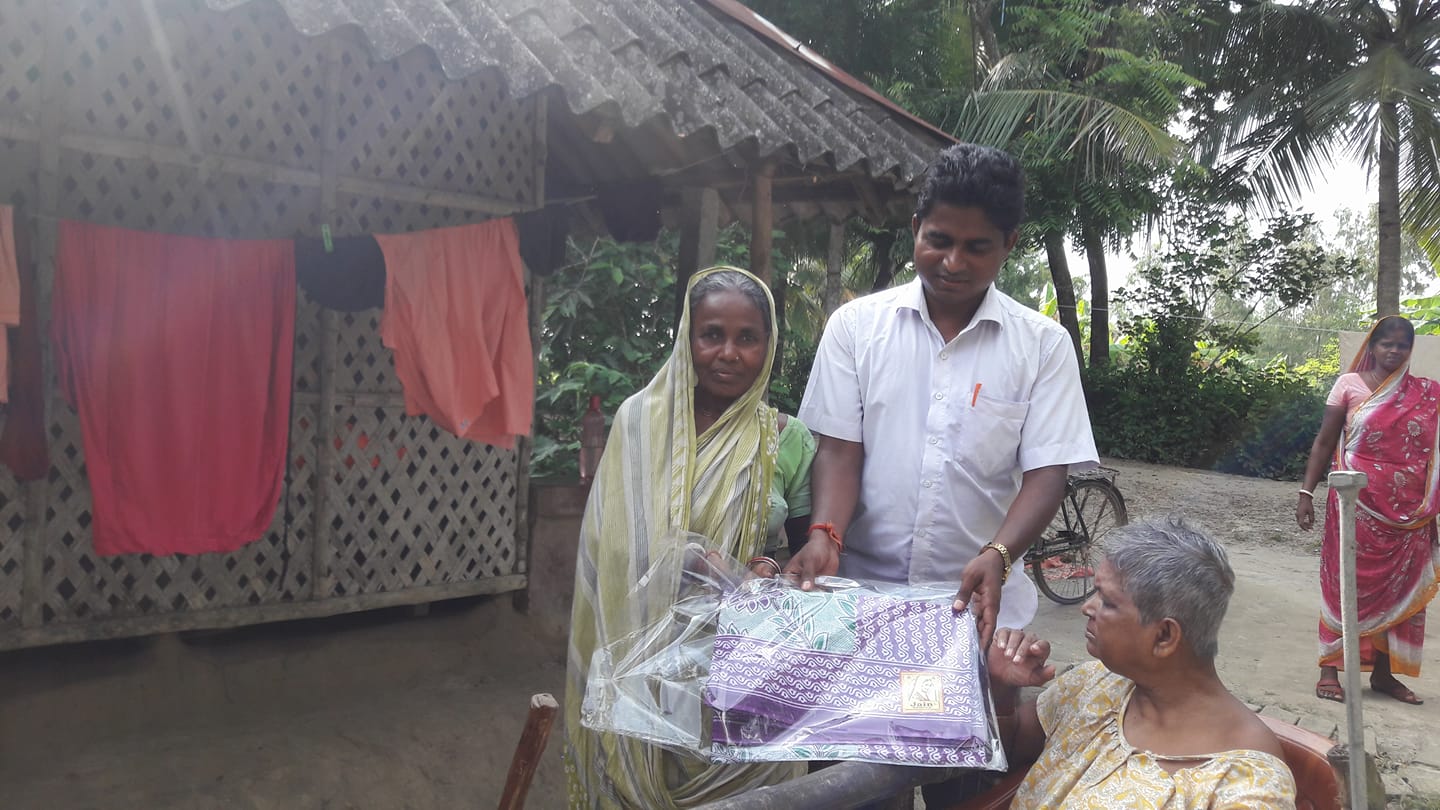
Coming back home
“Daily lives of ordinary people are badly affected and there are no systemic services to assist them. In a desperate search for fish, crabs and honey, people like my father venture deep into the forest. Sometimes, they are brutally killed by tigers and crocodiles. As a result, I saw many families facing financial problems due to the loss of their earning members,” says Prasenjit.
“Through my efforts, I have always tried to do some village welfare work like delivering free dresses, books, education kits, medicines and other essential goods for the struggling villagers. Through these activities, I realised that many of the uneducated, unemployed, unskilled and skilled youth, women and widows require various forms of social support,” he adds
His work began with setting up a free computer training centre in Gosaba Block, besides conducting various cultivation and agriculture-related training camps in remote village areas with help from Ramakrishna Mission, a non-profit, and Bidhan Chandra Krishi Vidyalaya, an agricultural university. Upon seeing some early results of his work, he decided to formalise it.
Inspired by his parents, their struggles and a desire to help others like them, he established the ‘Sundarban Foundation’, which was recognised by the state government in 2017.
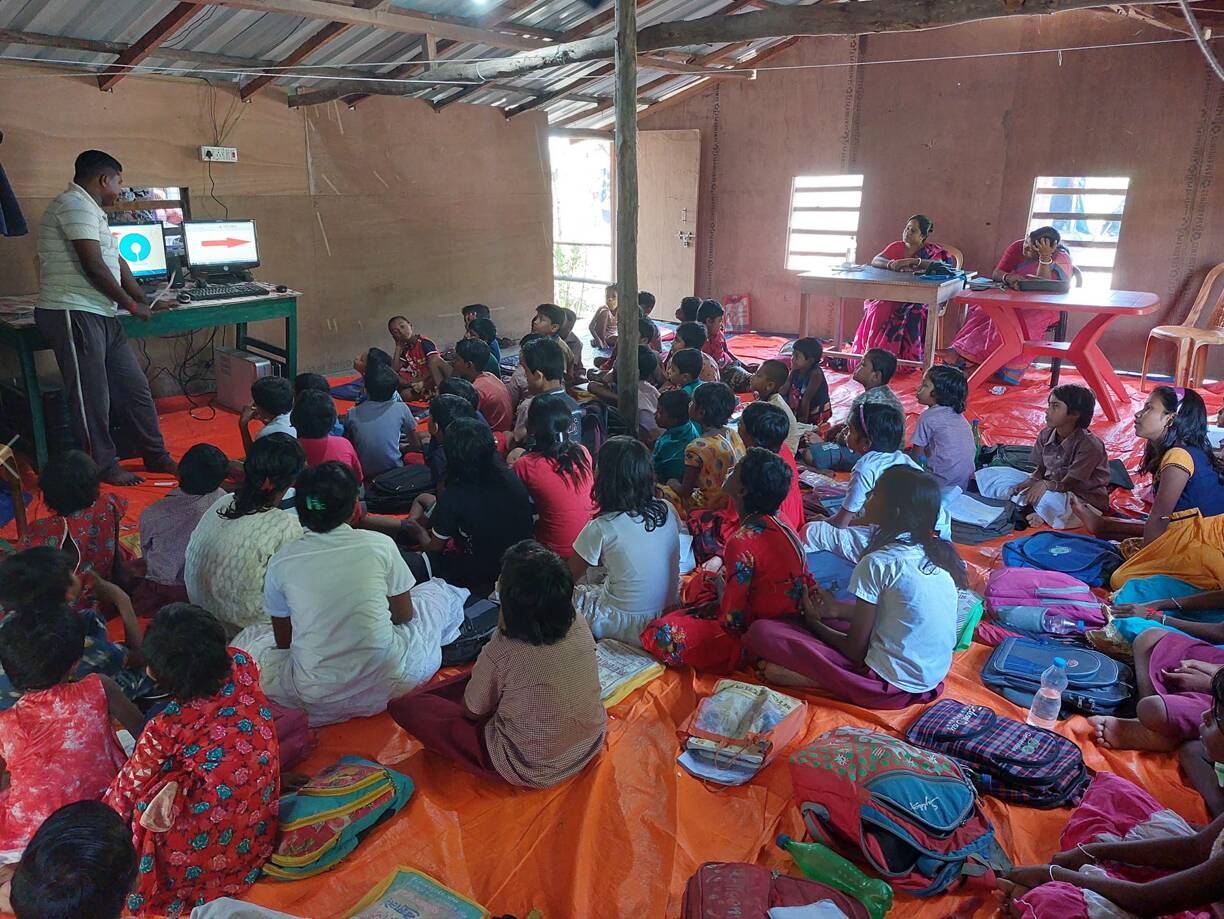
Generating Livelihoods with Bees
Among the myriad livelihood initiatives started by the Sundarban Foundation, the one which has taken off in Bali island is bee-keeping. “Instead of going into the forests, if people can start bee-keeping at home or the surrounding area, then they will be able to generate a livelihood without taking the risks associated with going deep into the forest,” he says.
In 2017, Prasenjit started the bee-keeping initiative with assistance from the Khadi and Village Industries Commission (KVIC), Government of India.
‘KVIC has provided opportunities to low-income families so that they become self-reliant through various activities, including bee-keeping. In the meantime, our foundation provided skill training in beekeeping as well as distributed free bee-keeping boxes to widows who have lost their husbands to tiger attacks. Around 500 people and 50 families have benefitted from this particular initiative in Bali Island, Gosaba Block,” he claims.
One resident who volunteers with Prasenjit is Babu Dani, a 35-year-old boatman who also works at the Sundarban Royal Eco Resort, an eco-tourism initiative which the former started.
“Living just 6-7 km away from Prasenjit’s home, I’ve known him since childhood. I used to work as a hotel waiter in Kolkata, but was laid off during the lockdown. When I came back, I saw Prasenjit walking on the road in front of my house and calling us for volunteer work,” he recalls.
“Through my time volunteering, we would give 10-12 bee boxes to each house. We train them in using these bee boxes, collecting honey and selling them. Families today earn anywhere between Rs 5,000-6,000 per month through beekeeping. Prasenjit also started the Sundarban Royal Eco Resort, an eco-tourism initiative, which employs locals like me,” he adds.
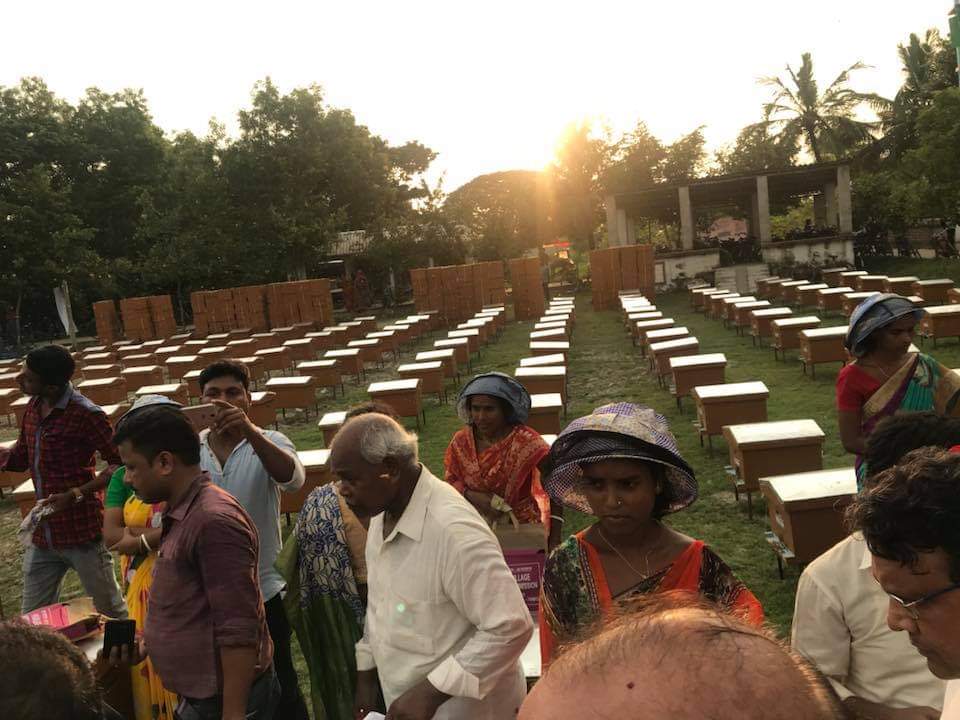
Charitable Medical Centre
Given the remoteness of Bali island, residents would have to travel two kilometres by boat to reach the nearest hospital. As a result, many don’t receive treatment on time or if they do, it’s often too late. In 2019, the foundation opened its own ‘Charitable Medical Centre’ on Bali Island, where nearly 600 people come for free treatment every month, claims Prasenjit.
“Local doctors of repute and junior doctors from hospitals in Kolkata regularly volunteer at the health centre with assistance from a few local youths. These doctors also organise medical camps and provide free treatment and medicine. Funding for these initiatives come from these doctors, social clubs like the Rotary Club, Kolkata, and also the Kolkata-based non-profit organisation called Rural Health Care Foundation,” he says.
The foundation provides free general health treatment with medicines, 24 hours oxygen support, ambulance services, regular eye examinations and telemedicine services, claims Prasenjit.
Saheb Dani, a resident of Gosaba village, volunteers at this centre offering first aid assistance. He has been volunteering here for the past one and a half years.
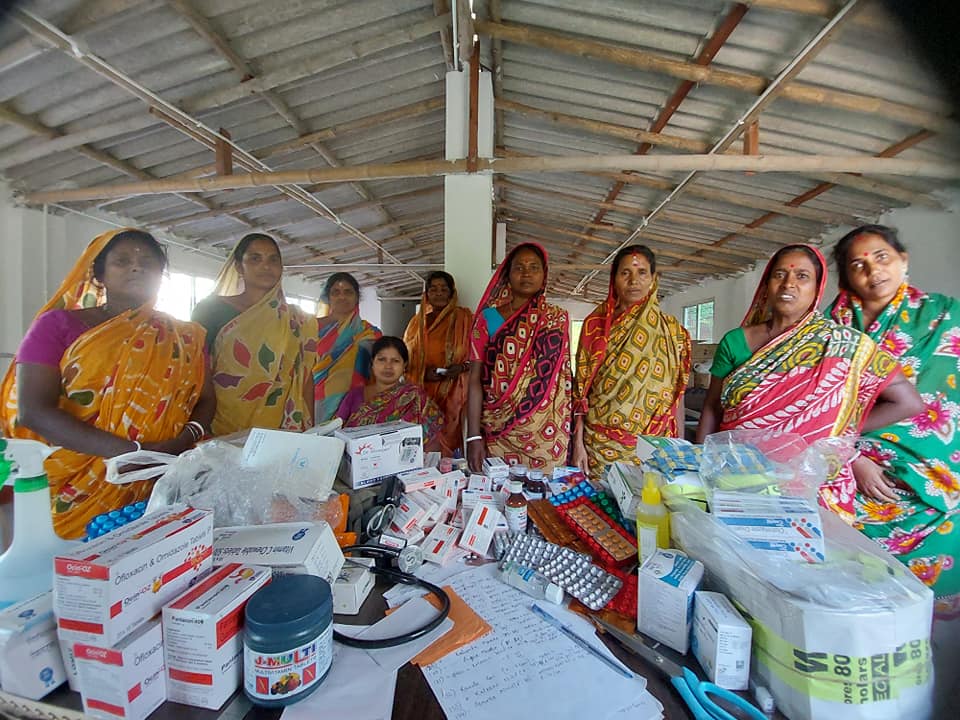
He says, “I volunteer there about four times a week. After finishing Class 12, I used to help doctors in that area and took first aid training. A lot of people volunteer here. We are getting medicine for free here, so why not help? People here suffer from the same regular diseases like food poisoning, high blood sugar and bee stings besides pneumonia. If the situation requires, we call a doctor from regular hospitals nearby, and he reaches the island immediately.”
During the pandemic, Prasenjit organised a series of ‘awareness camps’ with assistance from organisations and clubs in Kolkata, alongside local youth.
“We also provided free treatment, oxygen, ambulance services, masks, food items, clothes and hand sanitisers. Moreover, we delivered masks, food items, clothes and hand sanitisers free of cost to the elderly and the physically challenged, visiting them door to door. Around 1,000 families from Bali and neighbouring villages benefited from our relief work,” claims Prasenjit.
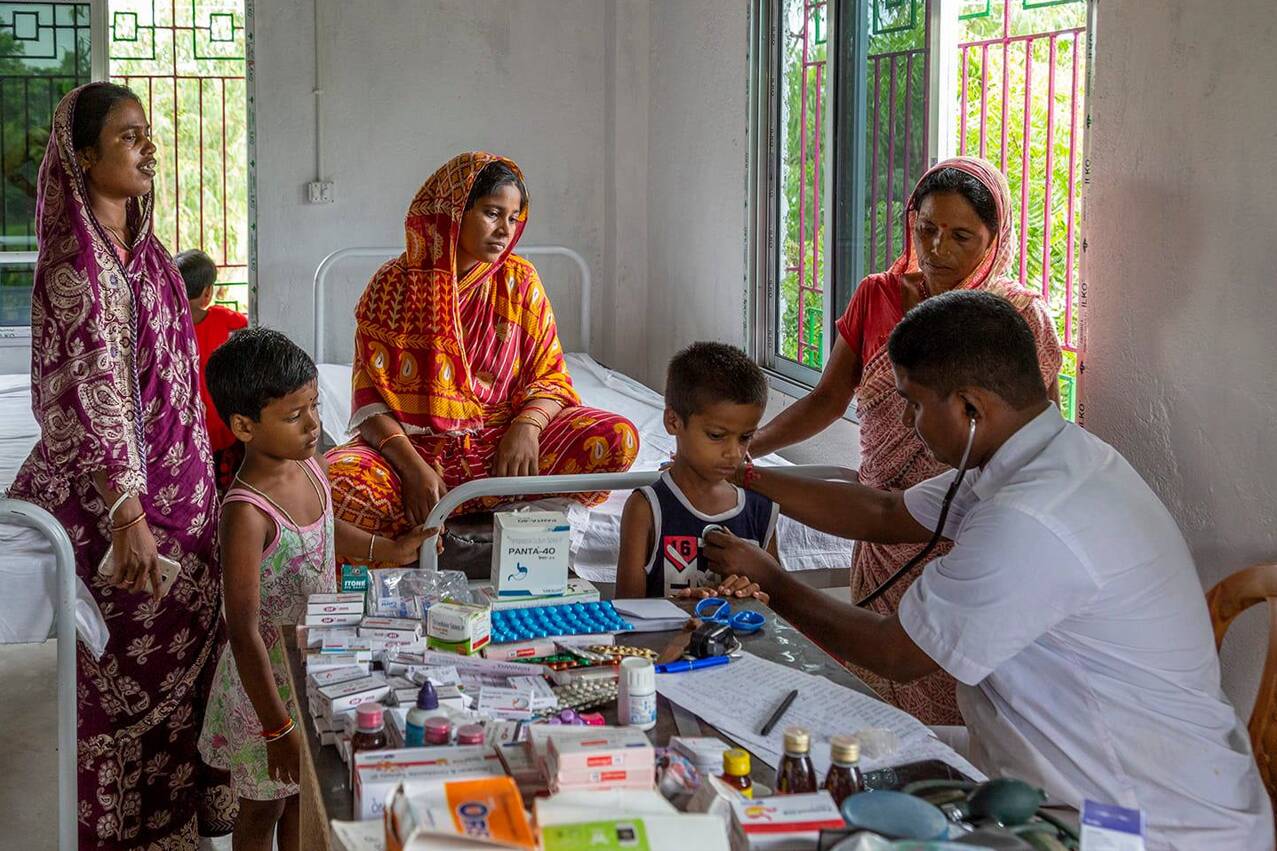
Mangrove Plantation
Experts note that mangroves protect coastlines from erosion and extreme weather events, improve water quality by filtering and serve as nurseries for marine creatures. Mangroves are also known to be among the most effective natural barriers against flooding.
According to UNESCO, “The Sundarbans provides sustainable livelihoods for millions of people in the vicinity of the site and acts as a shelter belt to protect the people from storms, cyclones, tidal surges, sea water seepage and intrusion. The area provides livelihood in certain seasons for large numbers of people living in small villages surrounding the property, working as wood-cutters, fishermen, honey gatherers, leaves and grass gatherers.”
But these mangrove forests, according to Prasenjit, are gradually disappearing due to natural calamities and tidal erosion at different times of the year. Thus, mangrove plantations are very essential for saving the river bed and controlling the water flow.
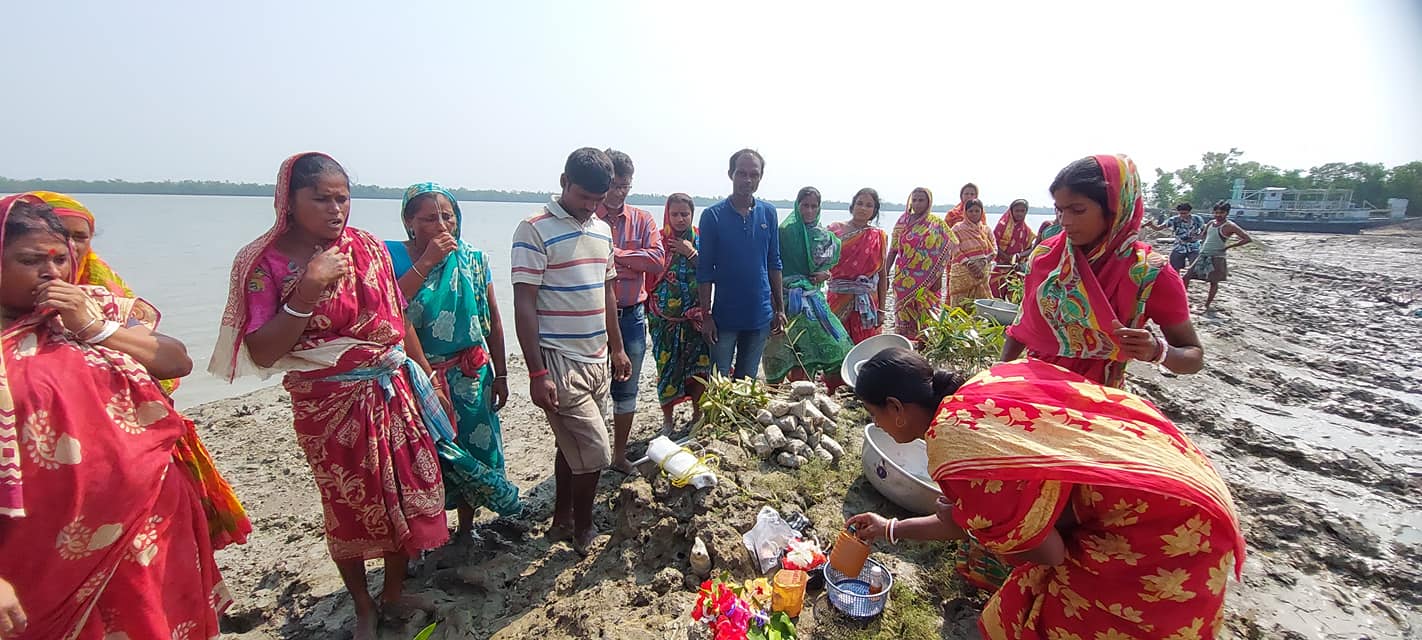
“Since 2017 I have been trying to plant the mangrove trees with the help of local youth, women, and widows. Till today, we have planted around 1 lakh mangrove saplings in the riverbed. We have planted these saplings in the different areas of Bali Island, i.e. Bijoy Nagar, Ranipur, Bali, Sonagor, Biraj Nagar, etc. These mangrove saplings take about 1-2 years to grow into fully-grown trees. For this exercise, we have employed locals, school dropouts and widows of the village, and this exercise slightly eases their financial problems,” claims Prasenjit.
Financial assistance for his initiative has come from the Rotary Club in Kolkata and other donors. Locally, we have set up teams to look after planting and nurturing [these saplings] respectively. This initiative is still going on and we have no plans on stopping.
Paritosh Biswas, a 38-year-old boatman and volunteer from Gosaba, has this to say, “We can’t live without planting mangrove trees. It saves us from storms. Whenever needed, about 30 to 50 volunteers join us. I’ve been volunteering with the foundation for the past year. I genuinely feel happy doing this kind of work because it helps so many people,” he says.
But it’s the women who largely make up the volunteering force. Speaking to AFP, Shivani Adhikari, a local resident, said, “Many mangrove saplings are being planted for the Sundarban Foundation with the help of women. We are all planting different varieties of mangroves. Sundarbans is an area prone to storms and cyclones, so to protect the embankments, all of us women are planting mangrove saplings.”
Meanwhile, another volunteer said, “It is very good that women are planting mangroves to protect the embankments. If these embankments are protected, our village will survive. If our village survives, we will survive.”
VIDEO: As experts warn of more powerful cyclones fuelled by #climatechange, a group of women in the Sundarbans, one of the world’s largest mangrove forests, plant thousands of saplings pic.twitter.com/KujkGEFWPa— AFP News Agency (@AFP) November 11, 2021
These are only some of the initiatives that Prasenjit and his Sundarban Foundation run.
He also runs a free pre-primary school catering to 60 students on the island called the Sundarban Adarsh School. Formally established in 2022, the school teaches Bengali, English and Maths. Besides free education from ‘skilled instructors’, the foundation also provides free tiffin, notebooks, pens, clothes, etc. for children studying there. Also, working in close coordination with locals, the foundation runs two volunteer ‘disaster management teams’ with five members each to help other residents deal with natural calamities.
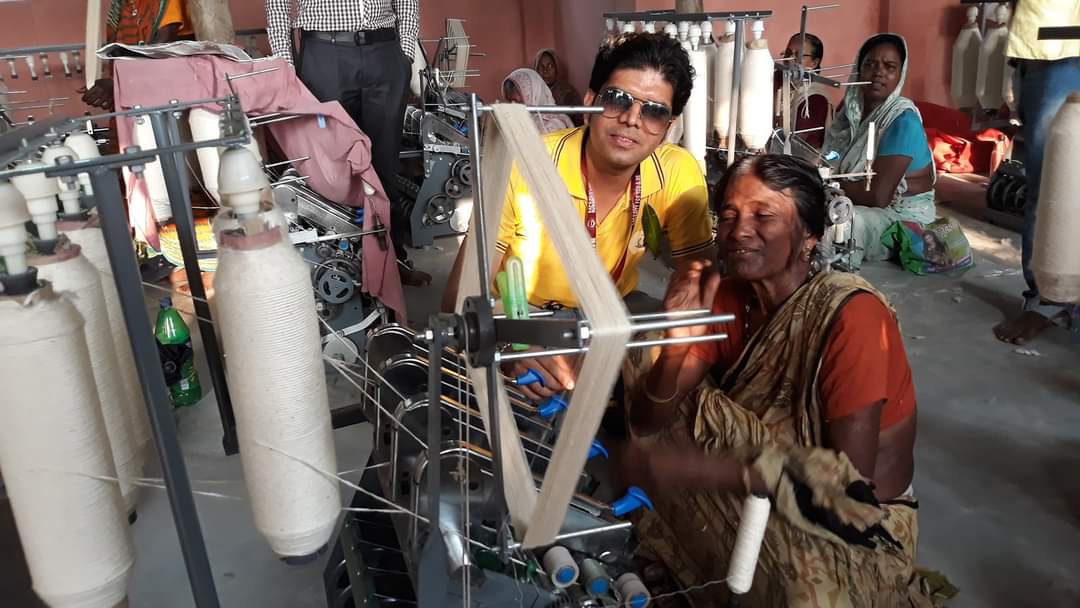
When Prasenjit came back home in 2016, he didn’t fathom the scope of the work required to help his people. Living at the epicentre of climate change, he understands how vulnerable the residents of the Sundarbans are to natural calamities. Many have already left the island, but he is determined to stay.
“After all, my only goal in life is to extend a helping hand to the people of Bali and Sundarbans from all sides,” he says. If you found our stories insightful, informative, or even just enjoyable, we invite you to consider making a voluntary payment to support the work we do at The Better India. Your contribution helps us continue producing quality content that educates, inspires, and drives positive change. Choose one of the payment options below for your contribution- By paying for the stories you value, you directly contribute to sustaining our efforts focused on making a difference in the world. Together, let’s ensure that impactful stories continue to be told and shared, enriching lives and communities alike. Thank you for your support. Here are some frequently asked questions you might find helpful to know why you are contributing?

(Edited by Yoshita Rao)
(Feature image contains Prasenjit Mandal, Chairman of Sundarban Foundation. You can read more about their work here. All images courtesy Prasenjit Mandal)
This story made me
-
97
-
121
-
89
-
167




